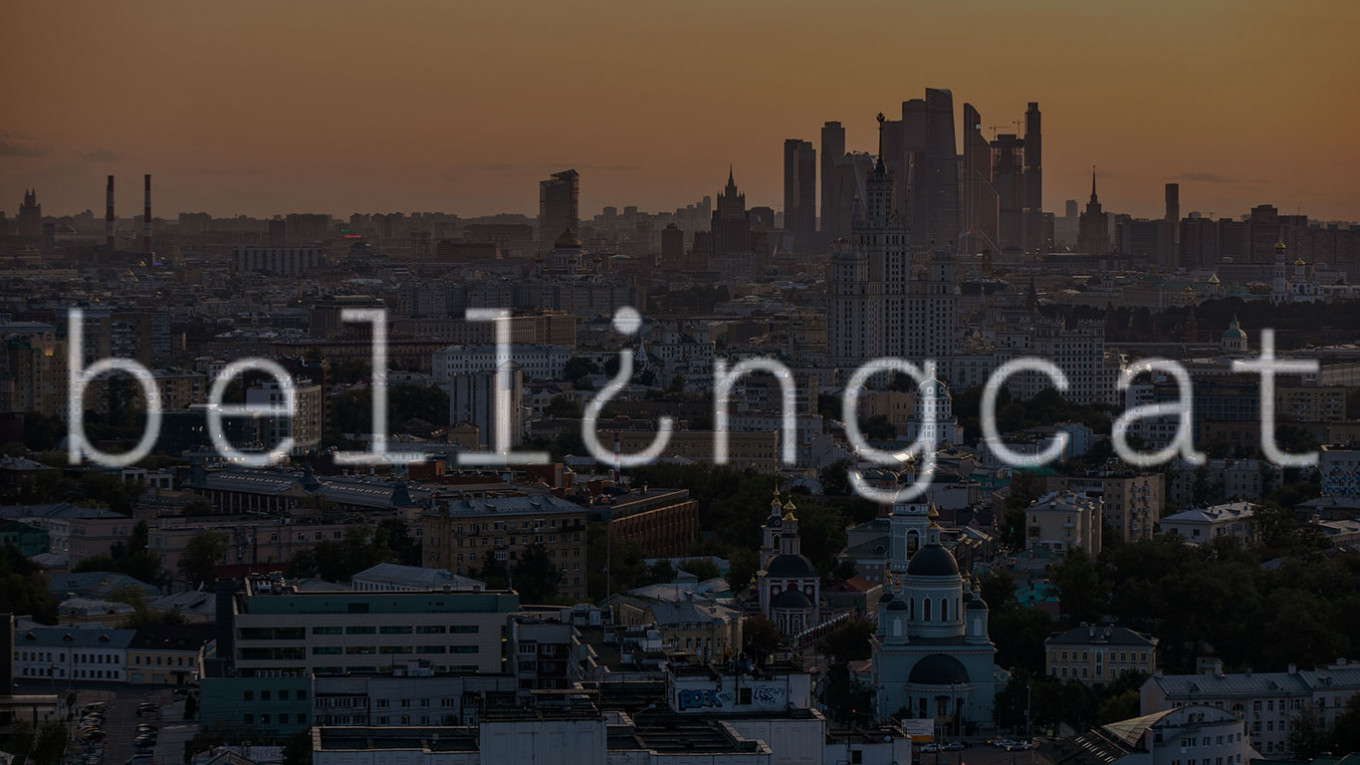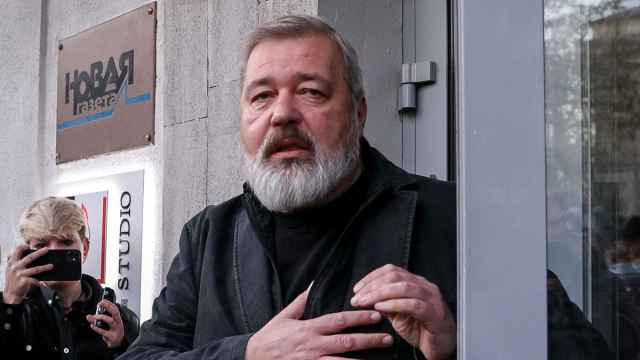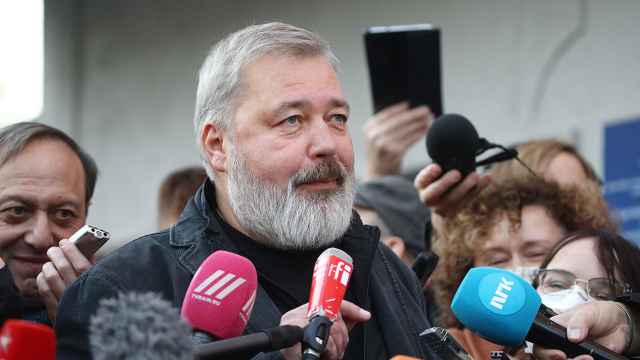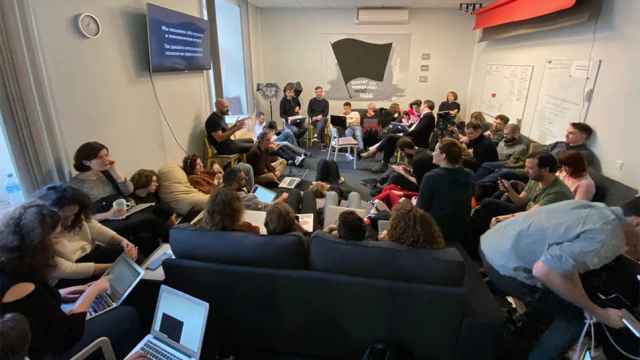Russia added the investigative outlet Bellingcat and nine journalists from various news outlets to its “foreign agents” registry Friday.
The additions come hours after the independent Novaya Gazeta newspaper’s editor Dmitry Muratov received the Nobel Peace Prize for “defending freedom of speech in Russia under increasingly challenging conditions.”
Bellingcat, as well as the independent Caucasian Knot news website and journalists including BBC Russian correspondent Andrei Zakharov and Dozhd journalist Daniil Sotnikov, appeared on the Justice Ministry’s lists of media outlets and individuals “performing the functions of a foreign agent.”
Zakharov, a former journalist at the now-defunct Proekt investigative outlet, broke the story on President Vladimir Putin’s alleged ex-mistress and their alleged extramarital daughter late last year.
Proekt was forced to shut down this summer after being labeled an “undesirable” organization.
“I expected this decision in the same way all independent journalists should expect it,” Sotnikov told The Moscow Times. “I do not know the exact reason why I was included, but the Justice Ministry does not tell why us why we are included in the lists. I assume the consequences of this decision won’t be very pleasant with all the extra reporting and the risk of a criminal case.”
Bellingcat, which is registered in the Netherlands, has released in-depth investigations into the poisonings of Kremlin critic Alexei Navalny and former double agent Sergei Skripal as well as Russian military intelligence activities in Europe. Moscow has repeatedly accused the outlet of being linked to Western intelligence, a claim its journalists deny.
Kremlin critics say the authorities are using the country’s “foreign agents” law to wage a campaign against independent media this year, with nearly all of Russia’s few remaining independent media outlets added to the registry in recent months.
News outlets and individual journalists added to the registry must follow rigorous financial reporting requirements and add a lengthy boilerplate text explaining their status to everything they publish, including social media posts.
A Message from The Moscow Times:
Dear readers,
We are facing unprecedented challenges. Russia's Prosecutor General's Office has designated The Moscow Times as an "undesirable" organization, criminalizing our work and putting our staff at risk of prosecution. This follows our earlier unjust labeling as a "foreign agent."
These actions are direct attempts to silence independent journalism in Russia. The authorities claim our work "discredits the decisions of the Russian leadership." We see things differently: we strive to provide accurate, unbiased reporting on Russia.
We, the journalists of The Moscow Times, refuse to be silenced. But to continue our work, we need your help.
Your support, no matter how small, makes a world of difference. If you can, please support us monthly starting from just $2. It's quick to set up, and every contribution makes a significant impact.
By supporting The Moscow Times, you're defending open, independent journalism in the face of repression. Thank you for standing with us.
Remind me later.






